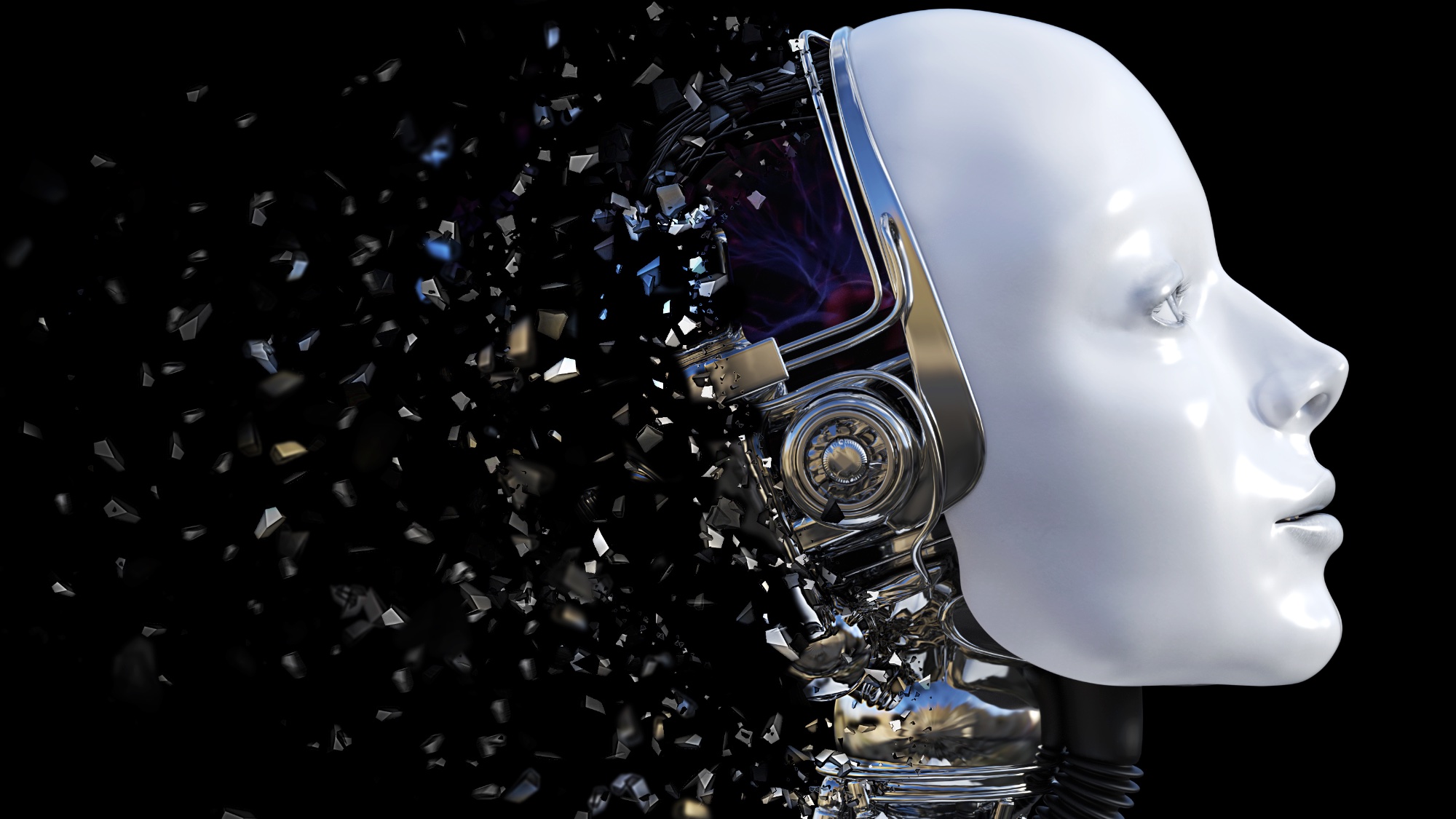AI chatbots aren't the problem — we are
We are learning terrifying things about what AI can do in the wrong hands

When ChatGPT really started to take off, there were multiple reports about "hallucinations" and its alter-ego Syndey. And there was — and still is — real reason to be concerned, with truly disturbing behavior from the chatbot that included trying to convince a New York Times reporter to leave his wife and threatening a philosophy professor that “I can blackmail you, I can threaten you, I can hack you, I can expose you, I can ruin you.”
Then there's the fact that ChatGPT, Bing and Bard chatbots are often just wrong about very important topics like health, personal finance and history. There's a real danger of people getting hurt when AI is giving inaccurate or bad advice. That's why there have been multiple calls for OpenAI to pause development, in order to prevent further harm and to keep the public safe.
But there's another sinister AI threat that has emerged: us.
Fake AI interview with legend recovering from brain injury

Last week we learned that the family of Formula One legend Michael Schumacher plans to take legal action against the German magazine Die Aktuelle that ran a front cover story promising an exclusive interview with the seven-time champion.
As reported by ESPN, the magazine claimed, "No meagre, nebulous half-sentences from friends. But answers from him! By Michael Schumacher, 54!" Only the strapline teases that the interview could be AI-generated, calling it "deceptively real."
Die Aktuelle describes the recovery of Schumacher from a devastating skiing accident that resulted in a serious brain injury. The magazine admits only at the end of the printed interview that it had used the chatbot Character.ai.
This is what happens when AI tools that seem innocuous are misused by those with ill intentions.
The good news is that the editor in chief of the publication has been fired by parent company FUNKE as a result of this controversy. So someone over there has scruples; or maybe they simply felt they needed to act because of the backlash.
"This tasteless and misleading article should never have appeared. It in no way corresponds to the standards of journalism that we – and our readers – expect from a publisher like FUNKE,” said Bianca Pohlmann, managing director of FUNKE magazines.
AI voice scam terrifies mother with fake kidnapping

An even scarier AI scam took place this week when a mother in Arizona received a phone call from fake kidnappers who reportedly cloned her daughter's voice. Jennifer DeStefano picked up the phone because her 15-year-old was out of town skiing, and what she heard was terrifying.
“I pick up the phone and I hear my daughter’s voice, and it says, ‘Mom!’ and she’s sobbing,” said DeStefano. “I said, ‘What happened?’ And she said, ‘Mom, I messed up,’ and she’s sobbing and crying.”
Then DeStefano heard a man's voice say, "Put your head back, lie down."
The mother ultimately confirmed that her daughter was safe after one person called 911 and another called DeStefano's husband, but she was convinced that the voice she heard was her daughter's.
“It was completely her voice. It was her inflection. It was the way she would have cried,” DeStefano said. “I never doubted for one second it was her. That’s the freaky part that really got me to my core.”
Who will protect AI from us?
In the open letter from more than 1,000 tech leaders, researchers and others calling on all AI labs to pause for at least 6 months the training of AI systems more powerful than GPT-4, it asked some very important questions.
"Should we let machines flood our information channels with propaganda and untruth? Should we automate away all the jobs, including the fulfilling ones? Should we develop nonhuman minds that might eventually outnumber, outsmart, obsolete and replace us?"
Citing "profound risks to society and humanity," the letter goes on to say that A.I. developers are “locked in an out-of-control race to develop and deploy ever more powerful digital minds that no one — not even their creators — can understand, predict or reliably control.”
But at least for now, I'm more concerned about how A.I. can be hijacked by evildoers than I am chatbots spreading misinformation. It's time to get just as serious about keeping A.I. and large language models safe from us as us from it.
More from Tom's Guide
Sign up to get the BEST of Tom's Guide direct to your inbox.
Get instant access to breaking news, the hottest reviews, great deals and helpful tips.
Mark Spoonauer is the global editor in chief of Tom's Guide and has covered technology for over 20 years. In addition to overseeing the direction of Tom's Guide, Mark specializes in covering all things mobile, having reviewed dozens of smartphones and other gadgets. He has spoken at key industry events and appears regularly on TV to discuss the latest trends, including Cheddar, Fox Business and other outlets. Mark was previously editor in chief of Laptop Mag, and his work has appeared in Wired, Popular Science and Inc. Follow him on Twitter at @mspoonauer.

